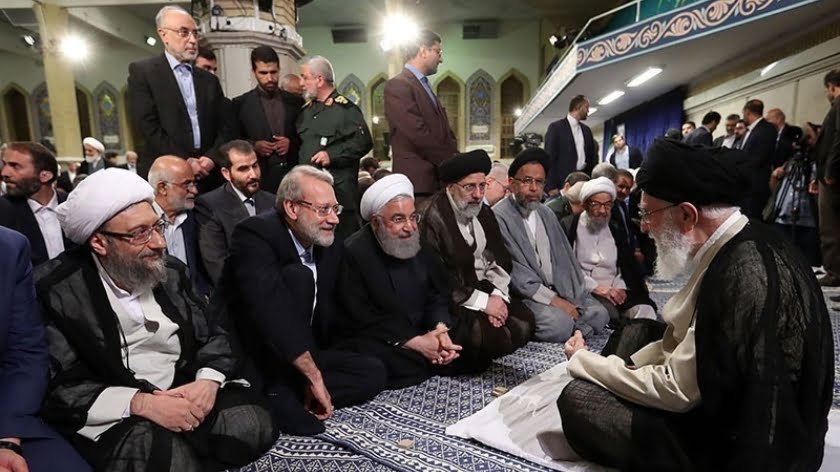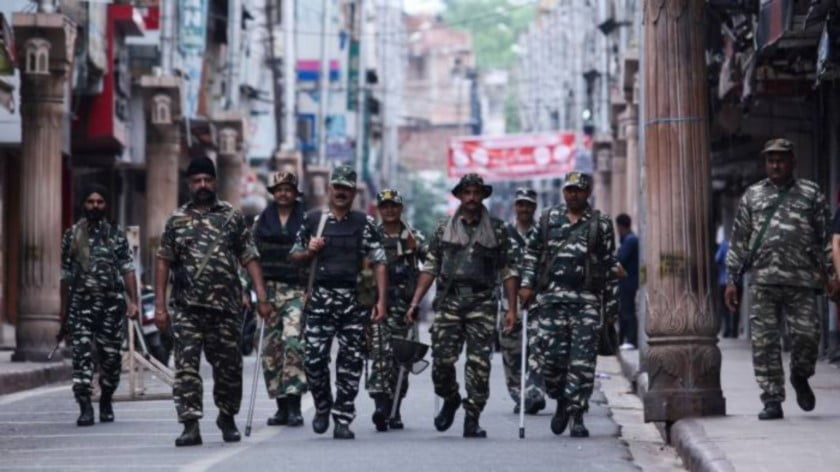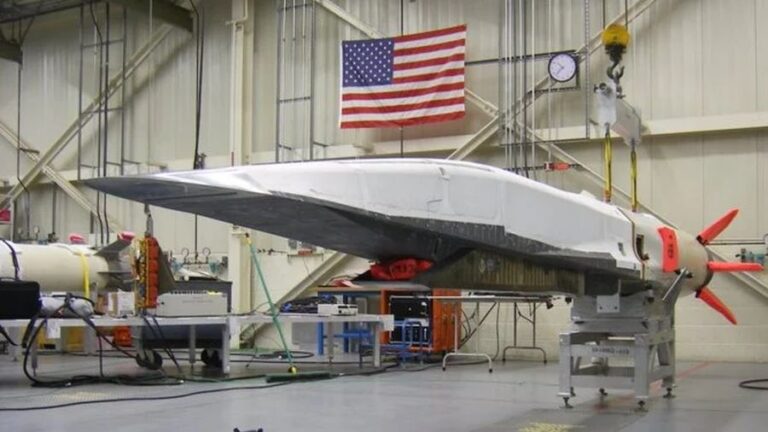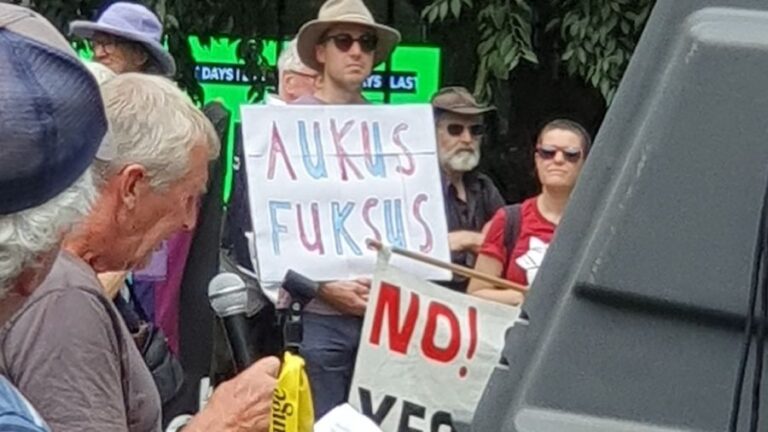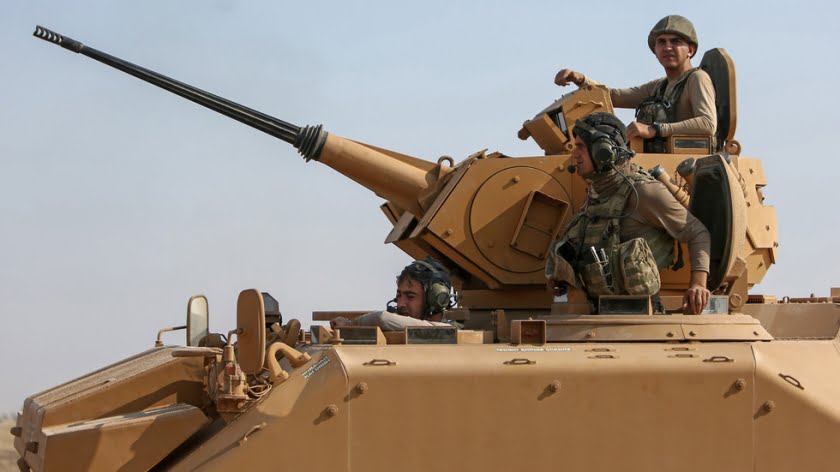After a Fruitless First Round Against Iran, the US has Nothing to Negotiate
When US president Donald Trump says he doesn’t want war with Iran, he expresses a position similar to that of Iranian Leader of the Revolution Sayyed Ali Khamenei, who has announced that Iran doesn’t “want to go to war nor to talk” with the US.
That brings the bras-de fer between the US and Iran back to square one. The US had been the first to escalate, making much of the deployment of an aircraft carrier to the region and sending a squad of four B-52s as an implicit threat to Iran. There followed a sabotage attack against Saudi, Emirati and Norwegian giant oil vessel carriers east of al-Fujairah harbour and the unprecedent Yemeni drone attack against Aramco Saudi 1,200 kilometre pipeline at Afif and al-Dawadmi that carries crude oil from the east to the Red Sea port city of Yanbu’ in the west. Since the two attacks, nothing has changed with the exception of Trump’s giving his phone number to the Swiss and receiving the Swiss President Ueli Maurer to pass on a message to Iran. Trump seems to be feigning ignorance of Iran’s most basic difference with the USA: Iran doesn’t want to negotiate; its phone is out of order and can only be fixed when Trump returns to the JCPOA nuclear deal.
The al-Fujairah Emirati harbour and the 1,200-kilometre Saudi pipeline can transport around 7 million barrels of oil per day without the need to go through the Strait of Hormuz that Iran says it has the ability to transform into a shipwreck in case of war. Nevertheless, Iran doesn’t want a war, nor does it want to close the Straits of Hormuz, a passage that is subject to international navigation law established by the UN. Any violation of this law will bring the condemnation of the world community, including Iran’s allies.
Tehran would only close the Straits of Hormuz if war is waged on Iran. One should carefully read the Iranian statement in this regard: “If we are prevented from using the Strait of Hormuz, we shall shut it down”, declared the Iranian Revolutionary Guard Corps (IRGC) leaders, in charge of the security of the Strait.
This is the point: no one is preventing Iran from using the Strait of Hormuz. The US sanctions apply to any country/company buying Iranian oil and trading with Iran. The US never said it would prevent Iran from delivering its oil on the high seas. Iran is stocking tens of millions of crude oil barrels in China and the Chinese oil tanker PACIFIC BRAVO in recent days loaded millions of barrels of Iranian oil, disregarding the US embargo and blowing up Trump’s “Zero oil exports” plan. The IRGC threat does not apply to current US actions.
Iran is not interested in challenging the US and, so far, is uninterested in showing its military capability. The al-Fujairah sabotage and the drone attack against Aramco were implicit messages. No one claimed responsibility for the al-Fujairah attacks while Yemeni-Houthi, Iran’s allies, took credit for the attack on Aramco. These messages expressed Tehran’s position in relation to the US threat. And the messages are clear: any confrontation will be costly. Iran’s allies are hitting US allies and oil is the target.
These signals should give Trump food for thought, because targeting oil will incite the whole world against the US president and his administration. Oil-prices are expected to climb and that will be a burden on the global population. Trump will suffer a major setback even before beginning his war on Iran.
Indeed, all recent US wars, notably Afghanistan (against al-Qaeda and the Taliban), Iraq (Weapons of Mass Destruction that never existed in the first place) and the regime change in Syria (to empower Jihadists and remove the Syrian president Bashar al-Assad), have failed to achieve the vision of a “New Middle East” touted by Shimon Peres in 1996 and since then by Condoleezza Rice, Obama, and Netanyahu. Al-Qaeda is stronger than ever; the Taliban are in control of over 52 provinces in Afghanistan, and the US is negotiating with them after years of conflict.
The Iraq war killed hundreds of thousands of Iraqis and Saddam Hussein was removed from power. This angered Gulf Arab States who chose to support an insurgency and ISIS in order to prevent a strong state ruled by Shia in Iraq.
And finally, since 2011, many Presidents and Prime Ministers have departed from office while President Bashar al-Assad is still in place. The US wanted to change the government in Syria to the benefit of takfiri jihadists (i.e. al-Qaeda and ISIS), or simply to destroy the Syrian state. This plan has failed.
US objectives have not been met despite its “almighty” military power. That leads to an obvious conclusion: the US can win wars in the region but never the aftermath and certainly not the peace.
Notwithstanding this track record, the US defies history and believes it is in a position to impose 12 impossible demands on Iran: demands including withdrawal of Iran from Syria, stopping support to Iran’s partners in the Middle East, and halting its precision missile production.
Why does Iran refuse to stop its missile programme? Why won’t it accept the US (12) conditions? Why does Iran need partners and allies in the Middle East? Why did it at great expense finance reconstruction of what Israel destroyed in Lebanon in 2006 to keep its partner (Hezbollah) afloat? Why has Iran invested billions to defend Iraq and Syria when the “Islamic Republic” is under the global sanctions and in need of funds? Why doesn’t Iran simply bow to US hegemony?
The answer is simple: It has nothing to do with Sayyed Ali Khamenei’s stubbornness or lack of long-term vision. It is a matter of survival for Iran and its Middle Eastern allies, and of their absolute mistrust of the US administration. The US has revoked its own (JCPOA) deal. It mistreats and humiliates its own allies. It extorts Arab Leaders yet fails to protect them when needed (the attacks against al-Fujairah and Aramco).
Iran has gathered partners who are unwilling to submit to the diktat and hegemony of Israel and the US. If the US were to try to work for peace with Iran, more than half of Iranian youth would gladly embrace such a move, captivated as they are by many aspects of US culture they consider cool, fun, and attractive. The Iranian market could be alluring for the US, as the US market is for Iranians.
Instead, the US is selling weapons to the Middle East because Trump “loves the King” and his money above all. Trump finds it amusing to extort $500 million in a one-minute conversation over the phone with Saudi King Salman. He brags overtly about his aggression and blackmail of his allies.
Iran’s survival depends on showing its strength and also on its allies, although it will only resort to arms in extremis. Iranians never forget how the world fought against them in 1980s when they were left with nothing but sanctions at the end of the war in 1988. It is up to the US to stand down and allow Middle Eastern countries to live in peace. But that would be detrimental to the US armament industry and would not please Israel at all.
Tehran will never negotiate with Trump even if Iranian leaders believe he will be re-elected for a second term. The Trump administration proved to Iran that Sayyed Ali Khamenei was right to reject negotiations with an untrustworthy US establishment. Thus, Tehran has no plans to help the US president to come down the tree he has climbed up. Trump’s phone won’t ring. This US administration has united Iranian moderates and radicals under the umbrella of the Welayat al-Faqih who is saying no to the “great Satan” (the US).
The Middle East is destroying itself with Middle Eastern money, manipulated by the US of course, but with the complicity of Middle Eastern leaders. All this money invested in wars since Afghanistan until today could have turned the Middle East into a rich and prosperous region. But things are changing: the Iranian David carries a sling and has gathered five smooth stones in order to do battle with the US Go liath with his sword and spear. In the Biblical story David cast one rock directly at Goliath’s head, enough to defeat him. Iran has chosen not to attack Goliath directly, since it seeks to avoid war. Two stones have been cast at al-Fujairah and Afif. Where will the next stone land, if Trump doesn’t lift his sanctions and return to the negotiation table?
By Elijah J. Magnier
Source: Elijah J. Magnier

